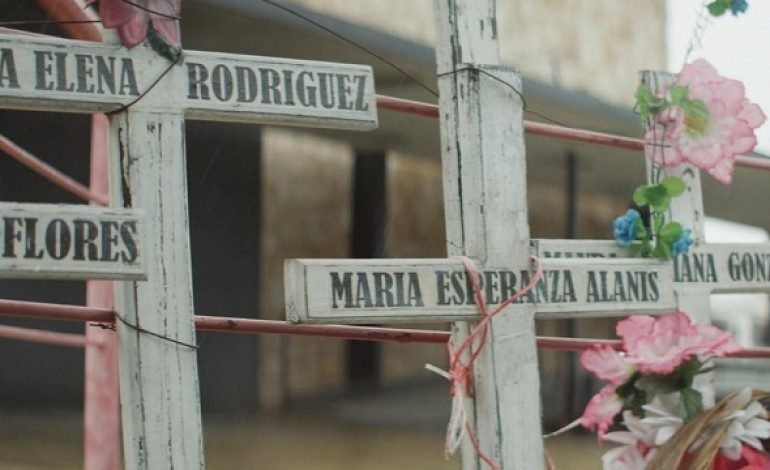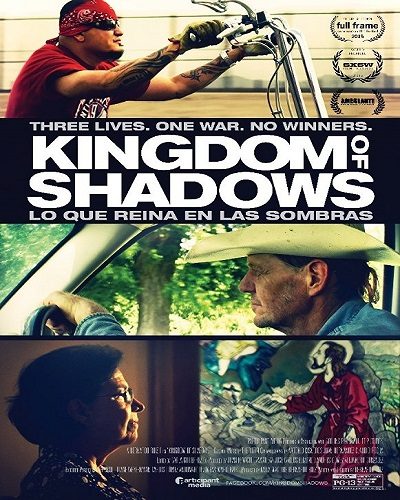

The ongoing war on drugs has played a big role in 2015 movies. Earlier this year, there was a documentary called Cartel Land and the Emily Blunt thriller Sicario, where she is part of a team hunting a drug cartel. Bernardo Ruiz’s documentary Kingdom of Shadows brings an interesting viewpoint – a few viewpoints, actually – on the wide-ranging effects of the war on drugs.
Told in triptych, Kingdom of Shadows comes from the viewpoint of a nun, an agent and a former marijuana smuggler. Sister Consuelo runs an organization to help families who have been afflicted by various cartels’ violent actions. She is fierce and dedicated to her work, always holding out hope that someone’s family member is still out there even though bodies continually pile up and are unearthed around Mexico. She offers the most compelling and emotionally involving moments of Kingdom of Shadows.
Oscar Hagelsieb, once worked as an undercover agent but now works for Homeland Security. Oscar is a family man who goes to work everyday, leaving his family, knowing he is putting himself at risk working with some of the most dangerous people in the world. Oscar even puts himself in front of the media, letting any cartel members know that he is an agent and if anything happens to him he has the backing of his fellow agents.
The former smuggler, Don Henry Ford, Jr., offers the least involving but still interesting input to Kingdom of Shadows. Where Sister Consuelo and Oscar offer the viewpoint of working against the cartels, Don offers the aspect of having worked with them. It has changed his entire view on life – he seems defeated and confused by such strong laws against marijuana – and he brings a world-weary stance to the topic.
Ruiz has captured the bleak world of drug trafficking in a familiar way and does nothing but emphasize the issue we have seen many times before. Many films and documentaries have showed the risk-taking aspect of working on both sides of drug trafficking. The film’s structure is far more interesting, trying to tell this story from multiple angles. The powerful moments of Ruiz’s film are not the moments about the drugs themselves but the lasting effects of cartel violence. It’s heartbreaking to watch families remain so hopeful that their loved ones are still out there when evidence from past cases points to less-than-favorable odds. Kingdom of Shadows really illustrates the psychological effects- which can be direct or indirect- of cartels.
Kingdom of Shadows runs a scant 75 minutes and often feels the need to try and tell too much in such a little amount of time. He could have expanded the film a little longer – something you rarely hear critics say – to fully flesh out his documentary. Still, Ruiz has made a bleak but technically sharp film that places you inside this dangerous world.
Verdict: 3 out of 5
Kingdom of Shadows isn’t essential viewing on drug cartels. It does, however, offer a different take on a story told many times. We know this is a problem and human lives are at risk in this seedy world, but Kingdom of Shadows shows how much of a problem it is for so many people.

